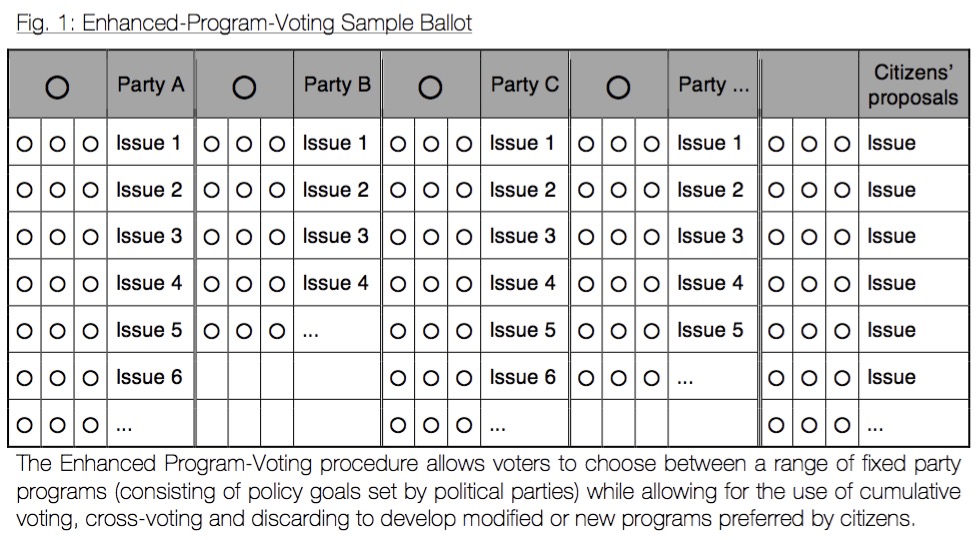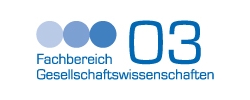Jonathan R. Rinne
Wissenschaftlicher Mitarbeiter

|
Raum 3.G 154 Hauspostfach 23 Tel. +49 69 798-36516 Sprechstunde nach Vereinbarung |
Vita (Auszug)
| 09/2015 - 10/2015 | Visiting Fellow an der Åbo Akademi, Finland |
| 08/2014 - 04/2015 | Democracy Fellow am Ash Center for Democratic Governance and Innovation, Harvard Kennedy School |
| seit 05/2014 | Wissenschaftlicher Mitarbeiter am Lehrstuhl von Prof. Dr. Brigitte Geißel |
| 04/2013 - 03/2014 | Research Assistant von Prof. Dr. Geißel im Rahmen der Wirkungsstudie "Bürgerbeteiligungsverfahren und Demokratiequalität" der Bertelsmann Stiftung. |
| seit 02/2013 | Doktorand an der Goethe-Universität Frankfurt |
| 12/2012 | Abschluss an der Goethe-Universität Frankfurt (Diplom-Politologe) |
| 03/2012 - 04/2014 | Hilfskraft am Lehrstuhl von Prof. Dr. Brigitte Geißel |
Promotionsprojekt
Citizens Set the Course.
Elaborating and Testing a New Approach to Translating Preferences into Political Decisions by Utilizing Program-Voting on Goals.
How can citizens' preferences be translated into policies in today’s democracies? The translation of citizens' preferences into political decisions is a sine qua non attribute of democracy. In representative democracy, ‘elections’ play a crucial role for establishing responsiveness, accountability and legitimacy of government and are the central form of citizens’ participation (e.g., Dahl 1970). Moreover, elections allow citizens to select and authorize the parties' candidates, as well as to decide on and mandate parties’ (or candidates’) policy proposals/programs (Manin, et al. 1999). Yet, as recent scholarship has shown, declining voter turnout (e.g., Dalton 2008; Norris 2001), the diversification of society (e.g., Bartolini/Mair 2001; Crouch 2004), and changes in citizens’ view of their role in the democratic processes (e.g., Geissel et al 2014; Nolte 2011) render the translation of the citizens’ preferences through elections dysfunctional.
A solution discussed in political science to address the problems of representative institutions is opening up the political system by introducing new channels for citizens to voice their preferences and make decisions directly (see Smith 2009; Geissel/Newton 2012; Urbinati/Warren 2008). The vast majority of such participatory procedures are supplements to existing institutions, introducing different ways to express preferences during a legislative term in addition to the channels of influence that are traditionally offered within representative decision-making processes. However, not only might such forms of citizen participation not be congruent with citizens’ preferences (Theiss-Morse/Hibbings 2001). But the institutionalization of such participatory procedures also possibly has unintended, yet crucially negative consequences on the democratic decision-making processes within representative institutions (e.g., Setälä 2006; Budge 2012; Jung 2002).
In my dissertation project I develop a new approach to translating citizens’ preferences into political decisions that goes beyond holding elections or additional participatory procedures during the legislative term. Two aspects are central to the novel approach I discuss in my work: a new division of labor between citizens and representative institutions and a new program voting procedure. First, according to my proposed division of labor, citizens' decision-making competence is mostly concentrated around setting political goals using participatory procedures. At the same time, representatives are tasked with finding the appropriate means for reaching the goals mandated by citizens. Second, this division of labor informs the Enhanced Program-Voting procedure, a new voting tool I developed to facilitate citizens' influence on the decision-making process.
In addition to a theoretical discussion, I empirically assess the potential of my proposed approach and it's impacts on citizens. I use survey as well as a “lab in the field” experiments to study how well preferences can be captured using program-voting procedures and how much such an approach is in line with citizens' competences and preferences for participation.

Forschungsinteressen
- Demokratietheorien
- Demokratische Innovationen
- Direkte Demokratie
Publikationen
Frankenberger, Rolf/Gabriel, Oscar W./Geißel, Brigitte/Rinne, Jonathan R. (2014): Partizipative Verfahren und ihre Wirkung auf politische Systeme. In: Bertelsmann Stiftung, Staatsministerium Baden-Württemberg (Hrsg.): Partizipation im Wandel. Gütersloh, S. 297 – 326.
Rinne, Jonathan R. (2012): Die multivariate Themen-Wahl. Überlegungen zu einem neuen direktdemokratischen Instrument. Münster.
Vorträge
"Policy Preferences, Process Preferences, and Internal Efficacy: An Experimental Approach to Assessing Program Voting Procedures", ECPR Genreal Conference, Prag, 07. bis 10. Septermber 2016.
"Capturing Voters’ Policy Preferences? Using VAA Techniques for Experimental Research on Program Voting Procedures", ECPR Genreal Conference, Prag, 07. bis 10. Septermber 2016.
"Citizens Set the Course. Reconsceiving Embedding Participatory Procedures in Representative Systems", Turku University, Finnland, 16.10.2015.
"Increasing Citizens' Say: An Experimental Study on Innovations in Program Voting", Åbo Akademi, Finnland, 13.10.2015.
"Embedding Participatory Procedures in Representative Democracy. Proposing a New Division of Labor", ECPR Genreal Conference, Montreal, 26. bis 29. August 2015.
"Redefining the Division of Labor between Citizen and Representatives", Ash Center, Harvard Kennedy School, 26.03.2015.
"Innovations in Direct Democracy", ECPR General Conference, Bordeaux, 3. bis 7. September 2013.
"Die multivariate Themen-Wahl. Eine Machbarkeitsstudie.", Doktorandentagung zu Bürgerbeteiligung am politischen Entscheidungsprozess, Frankfurt am Main, 6. und 7. September 2012.
Sekretariat Prof. Geißel
Melina Cali - Office Managerin
Raum 3.G 009
PEG-Gebäude
Hauspostfach 23
Theodor-W.-Adorno-Platz 6
60323 Frankfurt am Main
Telefon: +49 69 798-36515
Email: cali@soz.uni-frankfurt.de
- Aktuelles und Presse
- Pressemitteilungen
- Öffentliche Veranstaltungen
- Uni-Publikationen
- Aktuelles Jahrbuch
- UniReport
- Forschung Frankfurt
- Aktuelle Stellenangebote
- Frankfurter Kinder-Uni
- Internationales
- Outgoings
- Erasmus / LLP
- Goethe Welcome Centre (GWC)
- Refugees / Geflüchtete
- Erasmus +
- Sprachenzentrum oder Fremdsprachen
- Goethe Research Academy for Early Career Researchers
- Forschung
- Research Support
- Forschungsprojekte, Kooperationen, Infrastruktur
- Profilbereich Molecular & Translational Medicine
- Profilbereich Structure & Dynamics of Life
- Profilbereich Space, Time & Matter
- Profilbereich Sustainability & Biodiversity
- Profilbereich Orders & Transformations
- Profilbereich Universality & Diversity







